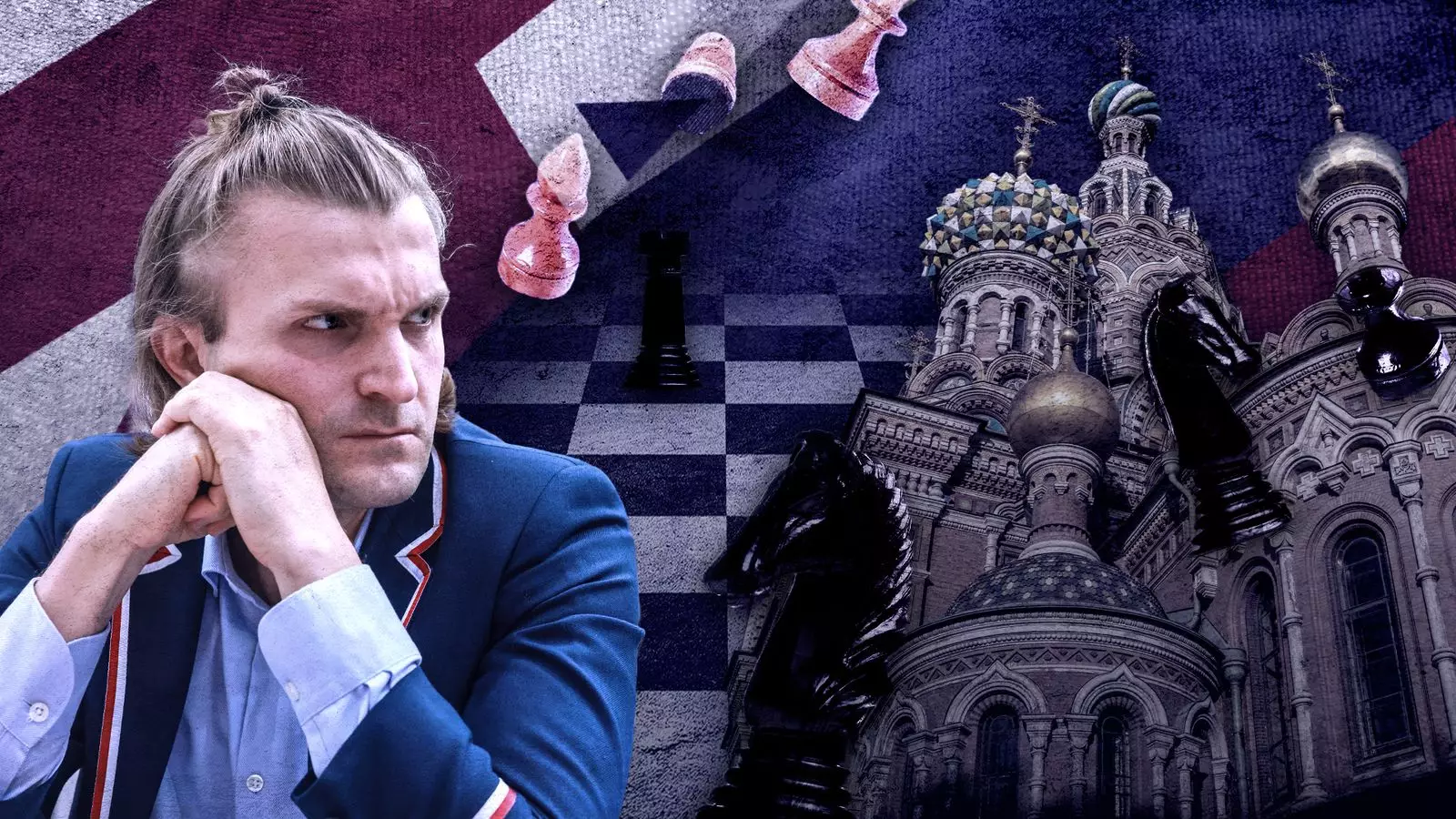For many, a new city often heralds a new life, but for Nikita Vitiugov, the move from St Petersburg to London encapsulates a profound shift rooted in geopolitics and personal conviction. The 37-year-old chess grandmaster, once a stalwart of Russian chess, now thrives in the cozy ambiance of a North London café, confidently navigating the complexities of identity and belonging while representing a country that is not his own. “The rain, the clouds, the lack of sun—I feel at home here,” he shares, drawing parallels between London’s overcast skies and those of his hometown. This connectivity to the elements mirrors his turbulent journey, marked by a courageous decision to reject the narratives of war and nationalism.
The war in Ukraine has rendered former allegiances untenable for many Russians, particularly those who, like Nikita, articulated their dissent. Standing up against a regime, especially in a sphere as celebrated as chess—a sport once intertwined with Russia’s national pride—poses significant risks. His relocation to England is more than just geographical; it symbolizes a stand against the ongoing violence and an embrace of a future where his voice holds value.
The chessboard has long served as a battleground for intellectual supremacy, but for Nikita, the stakes have shifted dramatically. Gone are the days when titans like Garry Kasparov and Bobby Fischer dominated the scene, heralded by their respective nations. In today’s Russia, chess retains its importance, yet the ramifications of dissent reverberate through its community. With the chess federation facing international sanctions and players prohibited from competing under the Russian flag, the landscape is fraught with tension.
Nikita’s bold departure from representing Russia during this time of conflict serves as a substantial statement. Amidst a culture of fear, where dissenters risk severe consequences, he has become a pivotal figure, advocating for peace and unity between Russians and Ukrainians. His assertion, “Russians and Ukrainians are brothers, not enemies. Stop the war,” encapsulates a hope for reconciliation that sharply contrasts with the prevailing narrative propagated by state media.
Facing the consequences of his newfound beliefs meant relinquishing his titles and the dreams he had nurtured since he began playing at the tender age of five. “That part of my life was over,” he confesses, equating the loss to a “divorce” from his country. Unlike other players who opted for less contentious transitions to countries like Spain or Serbia, Vitiugov’s choice to play for England marked a pivotal change in his identity and aspirations.
Navigating the logistical intricacies of changing national affiliations in chess involves navigating a complicated bureaucratic landscape. With the help of the English Chess Federation, not only was Nikita able to play again, but he and his family also secured residency in the UK. The weight of this achievement lies in the freedoms it represents—especially the freedom of opinion. “Here in the UK, you’re free to have your own opinion, which is great,” he notes, illustrating his gratitude for a welcoming environment where he can nurture his family’s future.
As the London Chess Classic approaches, excitement pulsates through Nikita’s narrative. A chance to compete against some of the world’s most talented players not only reinstates him in the chess scene but also heralds a fresh chapter in his career. However, the chess tournament’s location at Arsenal’s Emirates Stadium holds a humorous significance for the Tottenham fan; the playful rivalry becomes a metaphor for his journey—confronting challenges while establishing his new identity.
Nikita’s admiration for Viktor Korchnoi, another chess legend from St Petersburg, reveals his longing for a legacy that transcends borders. While Korchnoi fled the Soviet Union and made a name for himself in Switzerland, Nikita aims to carve his own niche in England. His arrival has invigorated the English chess team, propelling them further up the global ranks and revitalizing the competitive landscape.
Nikita’s narrative extends beyond personal victory; he represents a new reality for chess in England—one of heightened competition and cultural exchange. With the British championships on the horizon, the possibility of a Russian-born player claiming the title of English chess champion introduces an intriguing dynamic that encapsulates the beauty of a game that defies national boundaries.
Through his transition from St Petersburg to London, Nikita Vitiugov has opened a dialogue between the worlds of chess, politics, and personal identity. His story challenges perceptions while weaving a tapestry of resilience, hope, and the unyielding pursuit of peace in the face of conflict. As he continues to make his mark in England’s chess community, one can only hope that his journey inspires others to uphold their values, transcending the fractures of national identities in favor of unity and understanding.

Leave a Reply